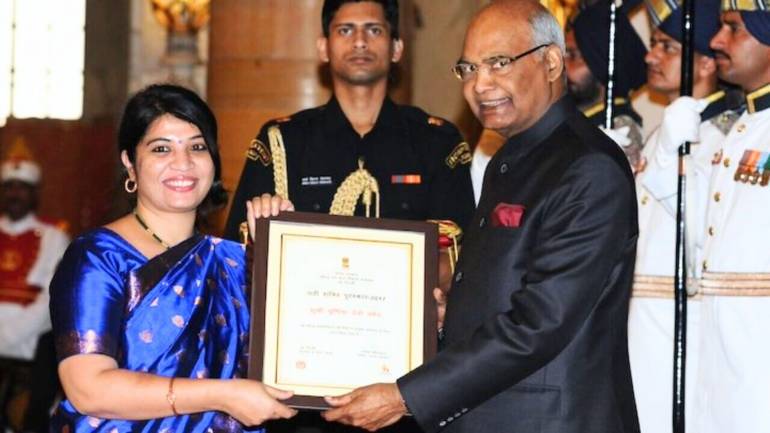Four with Asian roots named 2025 Time Women of the Year

An Indian conservationist, a Japanese actor, a Vietnamese-Chinese activist and cancer warrior, and an Icelandic-Chinese singer were among the 13 women honored by Time Magazine this year.
Purnima Devi Barman, a 45-year-old Indian wildlife biologist, is known for her work saving the world’s most endangered storks—the greater adjutant.
In 2007, the number of greater adjutant storks in Assam, northeastern India, was only 450.
She organized the "Hargila Army," a team of about 20,000 women, to protect the storks' nests from extinction. The Hargila Army, which has expanded across India and now parts of Cambodia, also educates people on the importance of these birds.
By 2023, through her work, the number of storks in Assam greatly grew to 1,800. The International Union for Conservation of Nature changed the storks' "endangered" status to "near threatened."
Anna Sawai is a Japanese actor. As an actor, she makes sure the roles she plays will change the image of Asian women who are objectified and sexualized in movies.
“We have so much more inside of us,” Time quoted her as saying. “I want to make sure that the roles that I choose are not going to perpetuate those images that I feel are incorrect, and I want to make sure that they’re very human.”
Sawai starred in Shōgun, the first Japanese-language series to win a Primetime Emmy Award for Outstanding Drama Series.
Shōgun set a new record as the most awarded single season of television in the Emmy Awards history when it won 18 categories at the 76th Primetime Emmy Awards and 76th Primetime Creative Arts Emmy Awards.
The series also won four Golden Globe Awards.
Laufey, a 25-year-old Icelandic-Chinese singer-songwriter, rose to fame for her jazz-inspired pop music.
She introduced jazz traditions to a new generation. Her unconventional approach to jazz drew criticisms from genre gatekeepers.
“I used to think that was such a scary thing: that nobody had walked that trail before me taking a break from recording her upcoming third studio album in New York City,” Time quoted her as saying. "But I now realize that when you can choose which steps to take and which branches to pull out, you know you have something good."
Her music draws interest from all ages, especially Gen Z. Her dance moves are now in the Fortnite video game.
Olivia Munn, an American actress of Vietnamese-Chinese descent, is a cancer warrior who raises awareness about breast cancer.
Her mammogram was clean, and she tested negative for genetic signatures associated with cancer a few months before she was diagnosed with breast cancer in 2023.
Her health prompted her to speak out. As a result, many women took the type of screening she did.
“I look at videos of me laughing with my son, running around in the park, feeling and looking healthy—all the while having this really aggressive, fast-moving cancer spreading through my breasts,” Time quoted her as saying. “I thought, ‘Man, there are so many women out there just like me.’ They might have no idea. And it may be too late by the time they find out.”
She also advocates for animal welfare. She assisted People for the Ethical Treatment of Animals (PETA), an NGO, in freeing sick elephants from a touring circus.
Munn used her social media platforms to speak out against anti-Asian sentiments, harassment, and assaults during the COVID-19 pandemic.
The 2025 Time Women of the Year named 13 well-known people, including actor and producer Nicole Kidman; WNBA star A’ja Wilson; Olympic gymnast Jordan Chiles; reproductive rights activist Amanda Zurawski; Feeding America CEO Claire Babineaux-Fontenot; Gambian women's rights activist Fatou Baldeh; activist and author Raquel Willis; co-founder and CEO of Bobbie Laura Modi; and Gisèle Pelicot, a voice for survivors of sexual violence.
Radio Veritas Asia (RVA), a media platform of the Catholic Church, aims to share Christ. RVA started in 1969 as a continental Catholic radio station to serve Asian countries in their respective local language, thus earning the tag “the Voice of Asian Christianity.” Responding to the emerging context, RVA embraced media platforms to connect with the global Asian audience via its 21 language websites and various social media platforms.














